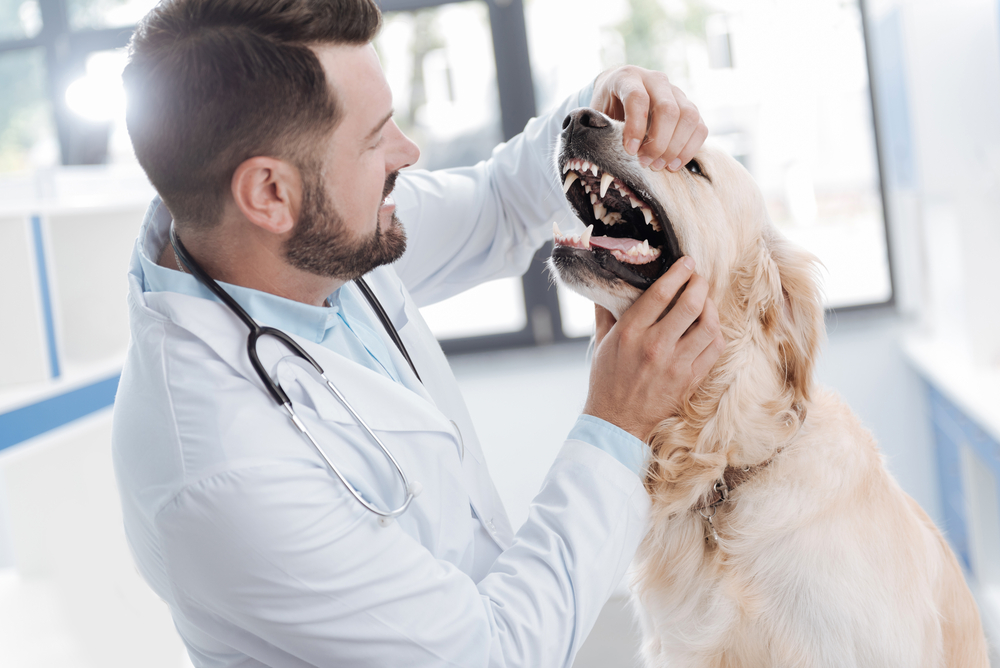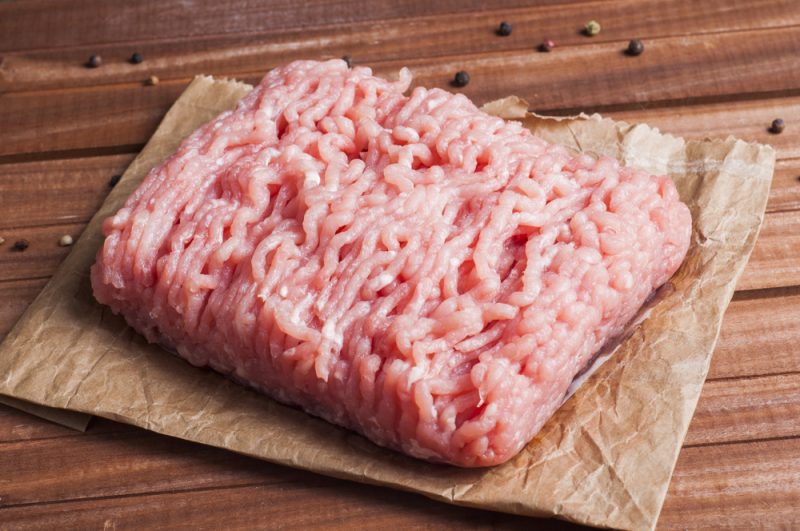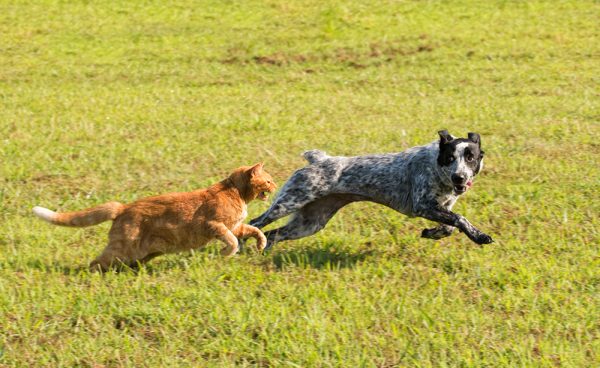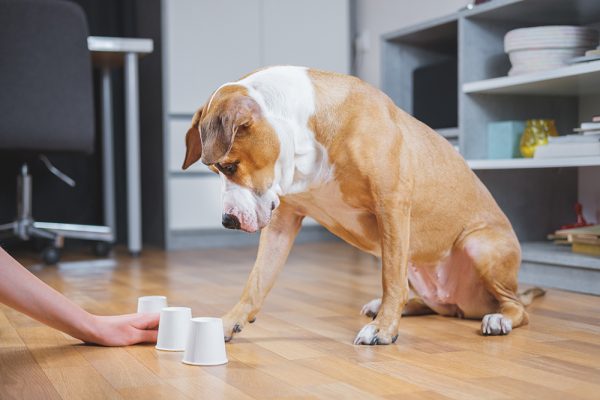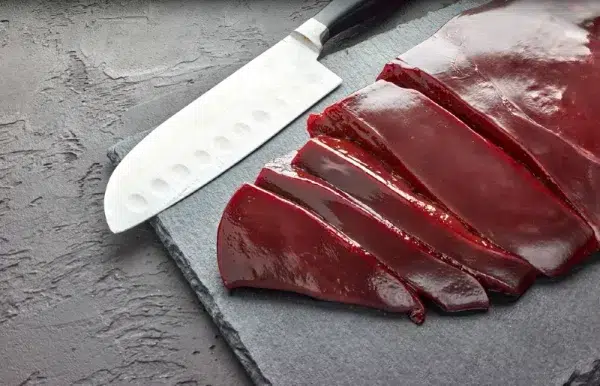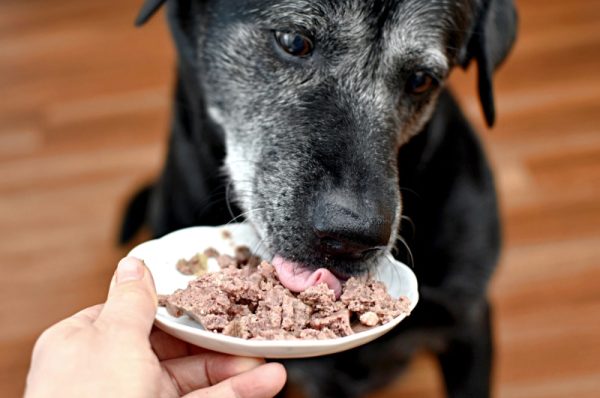Dental hygiene is an essential yet often ignored part of dog care. With dental issues being very common in dogs, proper maintenance of their teeth will significantly lower the risk of tartar buildup, gingivitis, and other dental diseases. Part of dental maintenance includes examining your dog’s teeth and knowing if any are fractured or missing.
An adult dog has 42 teeth, but it’s difficult to count them all. So, if you suspect that something’s wrong with your dog’s teeth, it’s best to schedule an appointment with a veterinarian for a more thorough examination. A veterinarian can determine if your dog has lost a tooth and also find out what caused it. Here are some possible reasons your dog may be missing teeth.

The 5 Reasons a Dog Is Missing Their Teeth
1. Teething During Puppyhood
The only normal and healthy cause of loose teeth or missing teeth is puppies going through their teething phase. Dogs have two sets of teeth throughout their entire lifetime. Their puppy teeth, or deciduous teeth, typically start to grow in when they’re about 3 weeks old. They then start to fall out when puppies reach 12 weeks old. Their deciduous teeth will be replaced by their adult teeth, which they’ll keep for the rest of their lives.
A puppy’s deciduous teeth usually fall out on their own without any assistance. It’s also common for puppies to accidentally swallow their loose teeth, so you may just see missing teeth in a puppy’s mouth.

2. Accident or Physical Trauma
Teeth can fracture and fall out if enough blunt force is applied against your dog’s jaw or mouth area. So, dogs can lose teeth if they get into accidents, like landing on their faces or falling from a significant height.
If your dog’s tooth falls out due to an injury, some remnant of the tooth likely remains in place. Even if it’s not visible the roots can still be there. There can also be damage to the jaw, like a fracture or cuts, so seeing a veterinarian promptly is important in this scenario. At the very least, your dog will need some pain relief.
Did you know you can speak to a veterinarian without having to travel? Just head over to PangoVet. It's our online service where you can talk to a vet online and get the advice you need for your pet — all at an affordable price!

3. Hard Chew Toys
Dogs can risk fracturing or losing teeth if they are chewing on the wrong type of chew or toy. So, they must only be given appropriately sized chews. Chews also range from soft to hard, and chews that are too hard can end up damaging a dog’s teeth. Dogs that are given chews that are too large and hard are more susceptible to fracturing or chipping their teeth.

4. Periodontal Disease
Periodontal disease is, unfortunately, a common health issue in dogs. This disease refers to infection and inflammation of the gums and tissues surrounding the tooth root. The precursor to periodontal disease is gingivitis. If left untreated, the disease will reach deeper into the tooth socket. It can cause pain, bad breath, and infection in the jaw before the teeth fall out. Other signs of periodontal disease include tartar buildup, inflamed gums, gum recession, and bleeding gums.
5. They Never Erupted
When teeth develop, they do so within the jaw and push their way into the mouth when it is time for them to erupt. Unerupted teeth are a problem as they can form dentigerous cysts within the jaw which can cause problems with the jaw and surrounding teeth. They may not erupt for genetic or developmental reasons, like abnormal positioning, overcrowding, and reduced force of eruption.
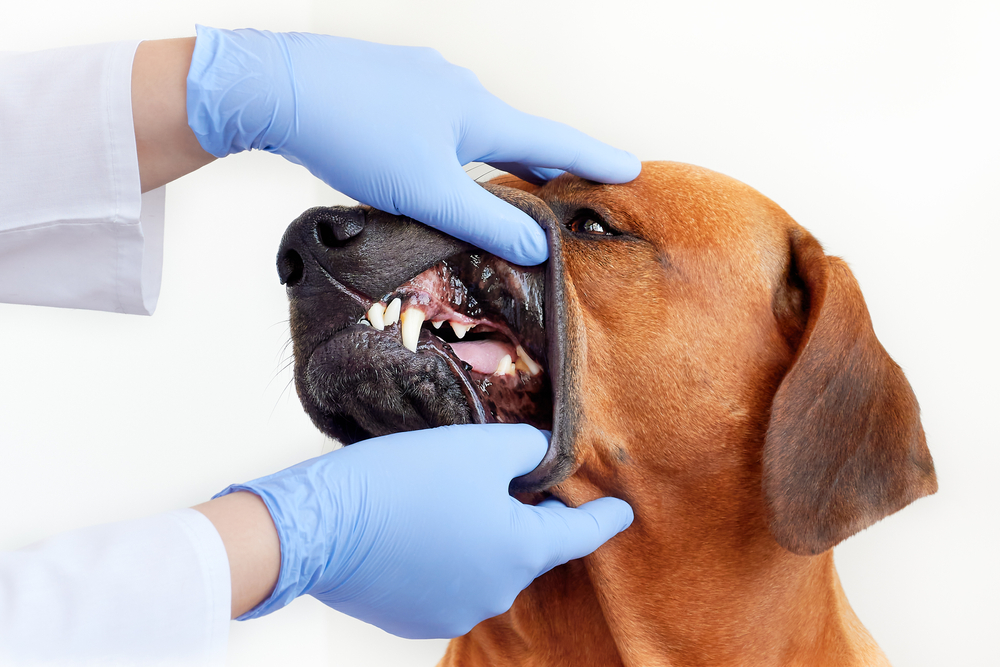

What to Do if Your Dog Loses a Tooth
If you notice any fractured or missing teeth in your dog’s mouth, contact your veterinarian right away. Your veterinarian can examine the space of the missing tooth to determine if there are remaining pieces that need to be extracted.
Since tooth loss isn’t normal, it is important to get your dog to a veterinarian so that they can diagnose its cause. They can also determine if the surrounding teeth have been affected and require additional attention and treatment.
If your dog loses a tooth due to an accident or injury, do your best to locate the missing tooth and bring it to your veterinarian. It can help your veterinarian determine if the whole tooth came out and if they need to extract the rest of the tooth from your dog’s mouth.

Conclusion
In most cases, tooth loss will require a visit to your veterinarian. They often indicate dental disease or require additional attention to ensure the tooth has been fully extracted. So, if you notice any missing or fractured teeth in your dog’s mouth, make sure to get them to veterinary care as soon as possible.
Featured Image Credit: YAKOBCHUK VIACHESLAV, Shutterstock
